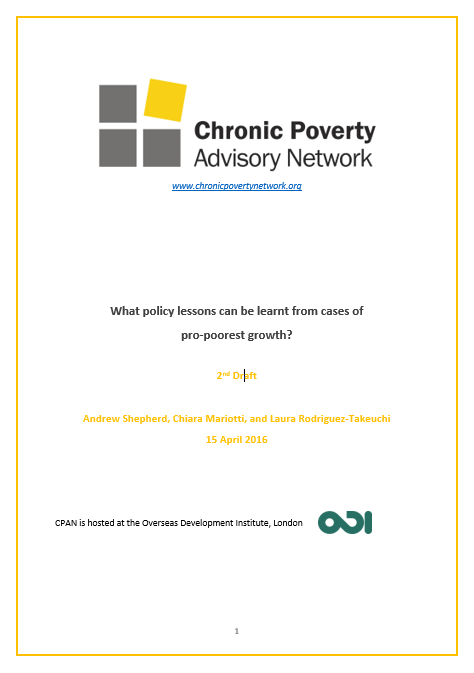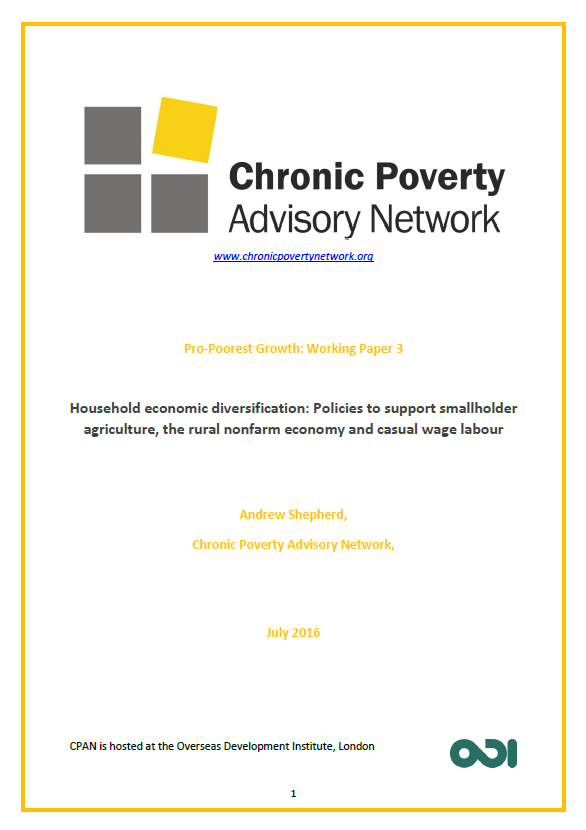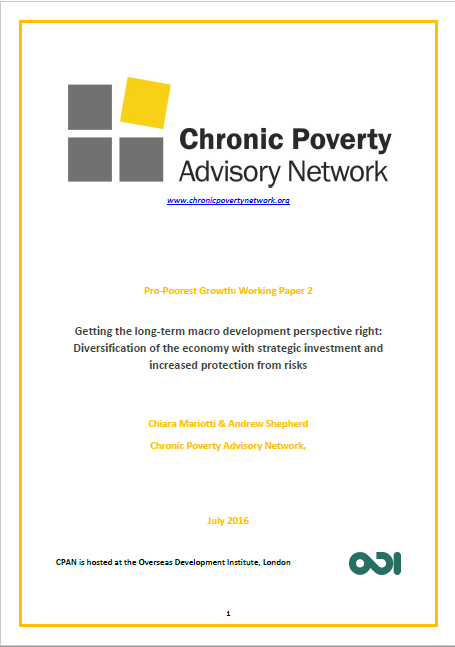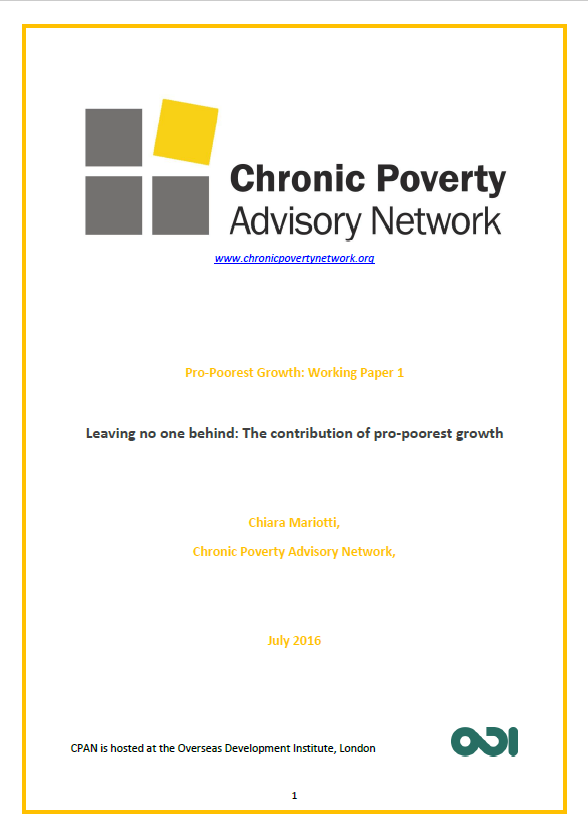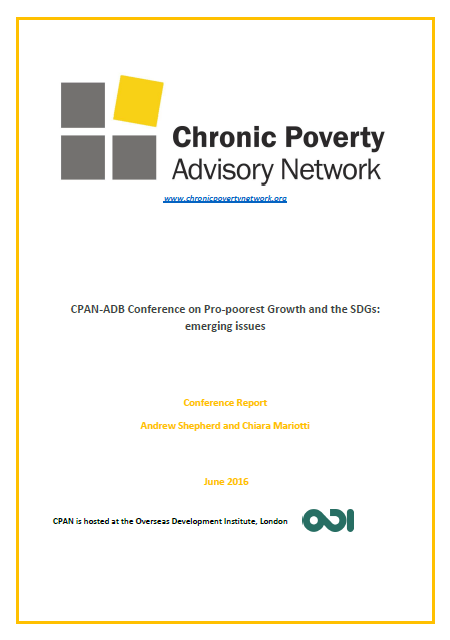The purpose of this Working Paper is to explore a menu of policy recommendations that developing country governments can use to think through their policy-making decisions and ensure the poorest people participate in economic growth on good terms, such that they can sustainably escape poverty.
The key messages emerging from the research are:
Pro-poorest growth can be driven by investment in labour-intensive industry, supported by institutional measures to ensure fair competition in the market and a voice for business with government. However, institutional measures are not always sufficient to generate such investments.
The gains from pro-poorest growth can be eroded if there is inadequate protection from major shocks—in particular impoverishing ill-health and food price inflation. There is a need for adequate health coverage and attention to casual wages as well as food prices.
Regional integration and cross-border trade can be powerful supports to pro-poorest growth. Here, South-East Asian countries have had a significant advantage over East African countries.
Cross-border migration of unskilled labour may assist pro-poor growth; it is internal migration that is most likely to contribute to pro-poorest growth. In both cases, supportive policies can reduce the costs and increase the returns to migration.
Download the paper (Via Orangedox)
This paper is one of the output of the research programme Leaving no one behind: adjusting economic growth strategies - Pro-poorest growth policy analysis
Authors: Chiara Mariotti and Andrew Shepherd
Related documents:

